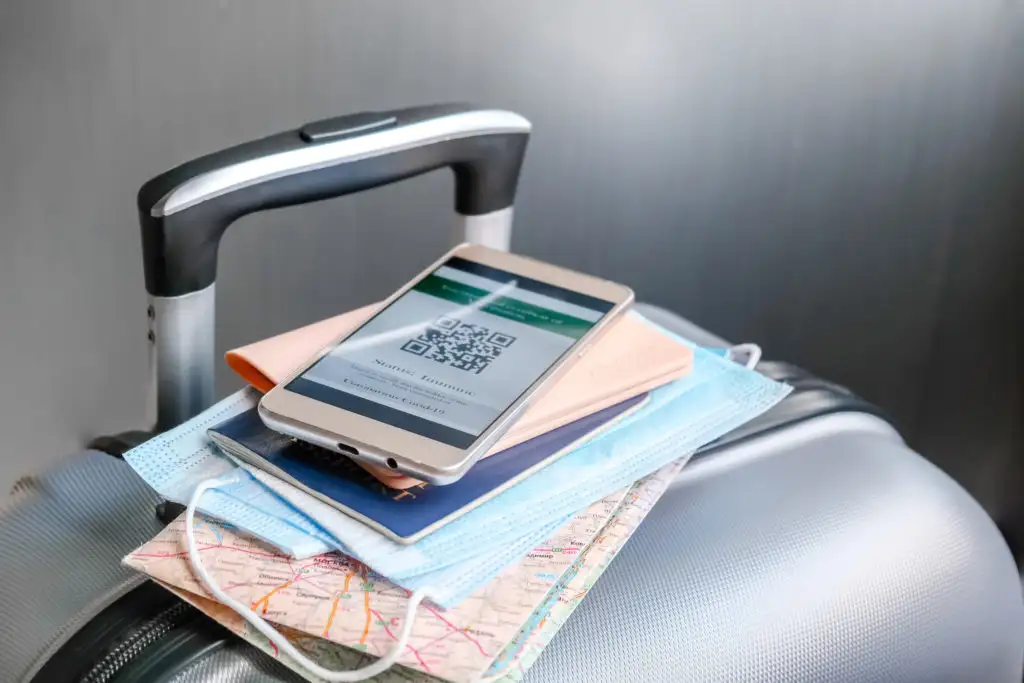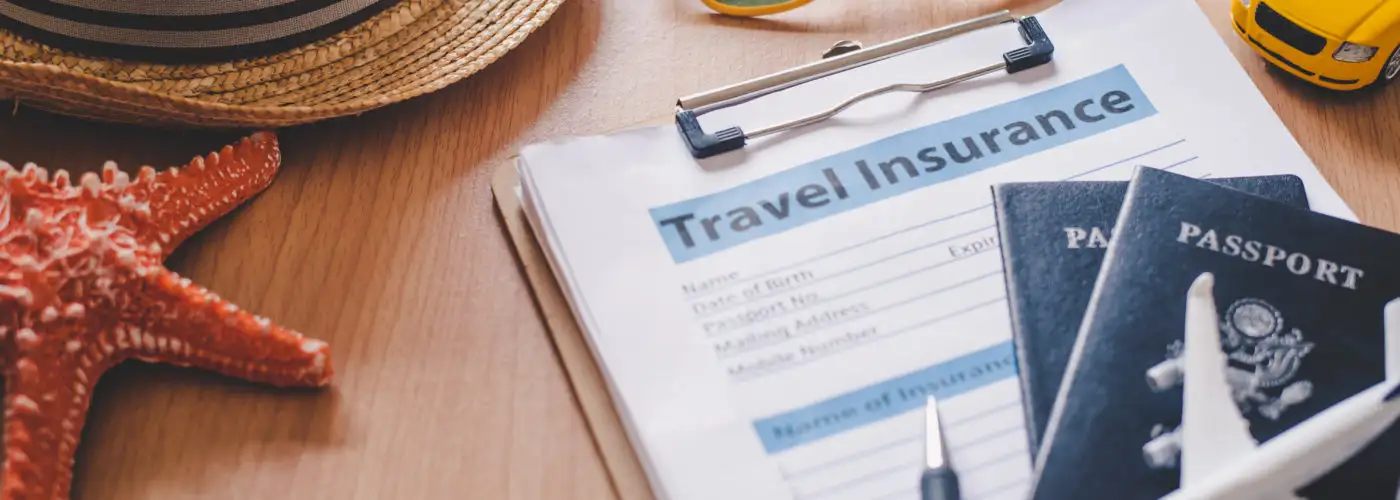The number of daily travelers has doubled since last year following the CDC announcement earlier this year that vaccinated individuals are clear to fly as long as they adhere to social distancing and mask guidelines. However, with the rise of virus variants and strict testing requirements at many destinations, many people are considering buying travel insurance to protect their upcoming trips.
Here’s everything you need to know about travel insurance before you plan your next adventure.
Does Travel Insurance Cover COVID-19?

There are different types of travel insurance that come with various coverage amounts, additional endorsements that can be added to your policy, and things that are not covered altogether.
Here are some examples of things that are typically covered under a travel insurance policy:
- Sickness, injury or death
- Cancellations or delays
- Auto accident
- Hijacking
- Quarantine
- Labor strike
- Jury Duty
- Uninhabitable accommodations
- Theft of travel documents
- Medical evaluation
- Military obligations
- Terrorist attack
- Civil disorder
- Job loss
- New vaccine requirements
While some of these might apply to a COVID-related event that could affect your tickets and other reservations, it’s important to know what the fine print entails when you are buying travel insurance under the current health advisory.
Standard travel insurance policies usually only cover an event if the purchaser is the one who contracts COVID-19. Things like family members getting sick, flight cancellations, and their quarantine requirements may not be covered if you’ve got the bare minimum amount of coverage.
How to Ensure Coverage in Case Covid-19 Disrupts Travel
It’s worth paying attention to some of the following terms when you are shopping around for travel insurance. It could mean the difference between getting a refund or having to say goodbye to your hard-earned cash.
Foreseen events
Foreseen events is insurance-speak for events that you could have probably seen coming. Since there is widespread awareness of the dangers of traveling during the pandemic, some insurance companies see certain COVID-related events as foreseeable events, and they will not be covered. However, they will typically offer an endorsement such as Allianz’s epidemic endorsement that can be added to cover COVID-related delays and cancellations.
Cancel for any reason
Because the rules can be a bit muddy and often not seem favorable for insureds, there has been a significant increase in popularity of plans that include “cancellation for any reason” in their coverage. Two of the most popular providers of travel insurance, Squaremouth and Seven Corners, both saw an increase of 165% and 180% respectively in the sales of plans that give you a percentage back on your refund if you cancel. Watch out for the fine print, as these policies do not always cover 100 percent of your trip (you can usually recover about 70 percent of your costs) and often require you to cancel at least three days before the trip was scheduled to depart.
Fear of Travel
Most travel insurance companies have a fear of travel clauses that will not pay out a refund if you cancel because you are afraid to travel for any reason. For example, although AIG’s travel policies will cover your trip cancellation and medical expenses if you test positive before or during your trip, they will not cover cancellations due to fear of travel because of the coronavirus.
COVID-19 Insurance Travel Checklist
As you’re packing your bags, you may be wondering if traveling with all these rules and restrictions will be worth the trouble. Not only are you probably in need of a break to clear your head and go somewhere new, but the travel industry needs it, too. The leisure, tourism, and hospitality industry represents 47% of all jobs lost during the pandemic. We are all ready to get back to normal. Before you go, make sure that you check these boxes off your list:
- Know the COVID-19 travel restrictions both in your area and at your destination. Some countries require that you buy a certain minimum amount of travel insurance, or will require travel insurance that covers quarantining, medical evacuation, or other eventualities.
- Buy travel insurance at least 14 days in advance of your trip, and make sure that you are aware of what’s covered and what isn’t. You don’t want to be unprepared in case the worst happens.
- Print out (or save to your phone) copies of your insurance card, insurance contact information, and policy details so it’s easily accessible if you need it on your trip.
You Might Also Like:
• 13 Packable Things That Could Save Your Life• US Issues Unusual Travel Warning for Popular Caribbean Country
• 4 Common Travel Disasters and How to Prevent Them
• The Ultimate Toiletry Kit Packing List
• 6 Ways to Avoid Getting Sick After Flying
We hand-pick everything we recommend and select items through testing and reviews. Some products are sent to us free of charge with no incentive to offer a favorable review. We offer our unbiased opinions and do not accept compensation to review products. All items are in stock and prices are accurate at the time of publication. If you buy something through our links, we may earn a commission.
Related
Top Fares From
Today's Top Travel Deals
Brought to you by ShermansTravel
Shop and Save with Country Inns...
Patricia Magaña
 Hotel & Lodging Deals
Hotel & Lodging Deals
$229 -- Chicago: Discounted Rates and...
Francesca Miele
 Hotel & Lodging Deals
$229+
Hotel & Lodging Deals
$229+
$188 -- Honolulu: Save on Oceanview...
Abigail Lamay
 Hotel & Lodging Deals
$188+
Hotel & Lodging Deals
$188+




